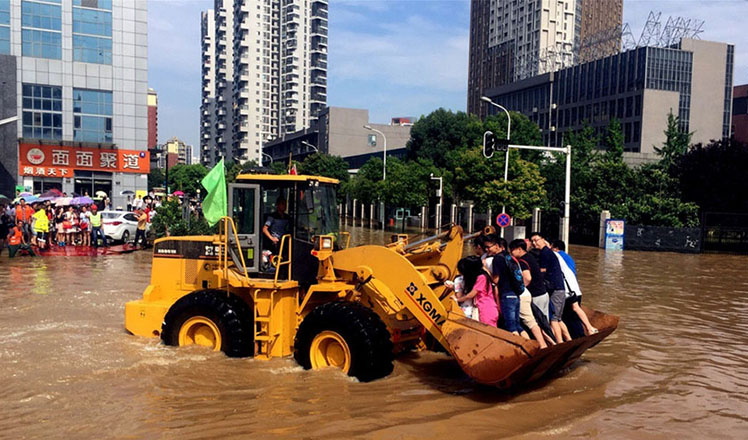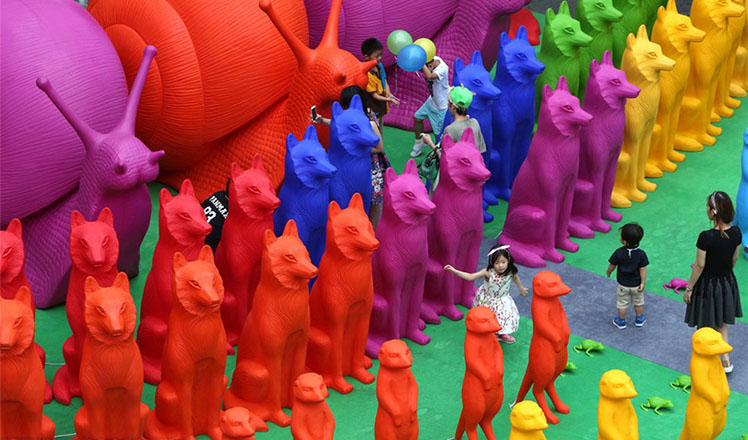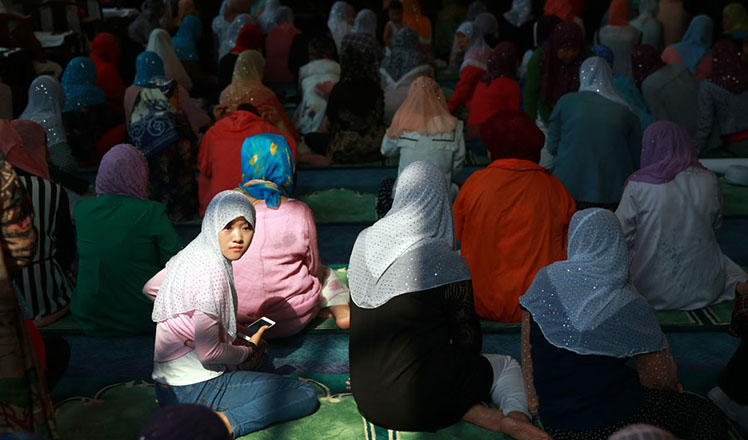Japan's ruling camp retains majority in upper house
Updated: 2016-07-11 10:27
(Xinhua)
|
||||||||
The failure of the Okinawa affairs minister, to some extent, showed serious divergence between the Japanese central government and the Okinawa prefectural government over US base relocation issue, especially after a recent notorious murder case that a US former marine corps killed an Okinawan woman and abandoned her body.
The prime minister will also plan to reshuffle its cabinet based on the election outcome and to compile a new stimulus package so as to push his "Abenomics."
The largest opposition party here, the Democratic Party, gained 32 seats on Sunday, marking an improved performance from three years ago. Katsuya Okada, head of the Democratic Party, said that the party is recovering but not sufficient, adding his party will pay more attention to citizen's involvement in the politics.
Okada said he will continue his work as the party's leader until September, but he stopped short that whether he will run for the party's head election to be held in the same month.
However, voters here voiced their contradictory feeling over the election. A 30-year-old voter who identified herself as Shibata told Xinhua outside a polling office at Shibuya earlier the day that "I am against amending the Constitution, because it's likely to drag Japan into war. But I still voted for the LDP, because I don't like the opposition parties either. People say that the LDP is going to change the constitution. I really don't know what to do."
For Shibata, however, the problem is, if she did not vote for the LDP, who could she vote for, as in her eyes, the opposition parties seemed to have also failed to offer feasible solutions to the problems that Japan is faced with.
Shibata's words were echoed by Yamaguchi, a 20-year-old company employee who voted for the first time on Sunday. "I don't know much about these candidates. And I don't know what constitutional amendment really means to us," she said, after casting her ballots.
Voter turnout was estimated at 53.66 percent, slightly higher than the 52.61 percent in the previous upper house election in 2013. The Japanese Kyodo News said that the additional 2.4 million new voters aged between 18 to 19 have done little to boost turnout.
- Eid al-Fitr celebrated worldwide
- Swedish PM looking at tightening laws after festival sex attacks
- British PM race cut to 3 hopefuls as 2 contenders exit contest
- Chinese herbalists offer free US treatment
- Obama praises Hillary's judgement hours after FBI's censure
- Rio mayor tells Olympic visitors: 'Don't expect New York or London'

 Griezmann scores twice to lift France into Euro final
Griezmann scores twice to lift France into Euro final
 Life goes on in flooded Wuhan
Life goes on in flooded Wuhan
 Paper cutouts offer a new view of world landmarks
Paper cutouts offer a new view of world landmarks
 Animals occupy Shanghai
Animals occupy Shanghai
 Beijing Muslims mark end of Ramadan
Beijing Muslims mark end of Ramadan
 Remember emerging heroes in China's floods
Remember emerging heroes in China's floods
 Ronaldo powers Portugal into Euro 2016 final
Ronaldo powers Portugal into Euro 2016 final
 Culture Insider: Six things you may not know about Minor Heat
Culture Insider: Six things you may not know about Minor Heat
Most Viewed
Editor's Picks

|

|

|

|

|

|
Today's Top News
Ministry slams US-Korean THAAD deployment
Two police officers shot at protest in Dallas
Abe's blame game reveals his policies failing to get results
Ending wildlife trafficking must be policy priority in Asia
Effects of supply-side reform take time to be seen
Chinese State Councilor Yang Jiechi to meet Kerry
Chinese stocks surge on back of MSCI rumors
Liang avoids jail in shooting death
US Weekly

|

|







